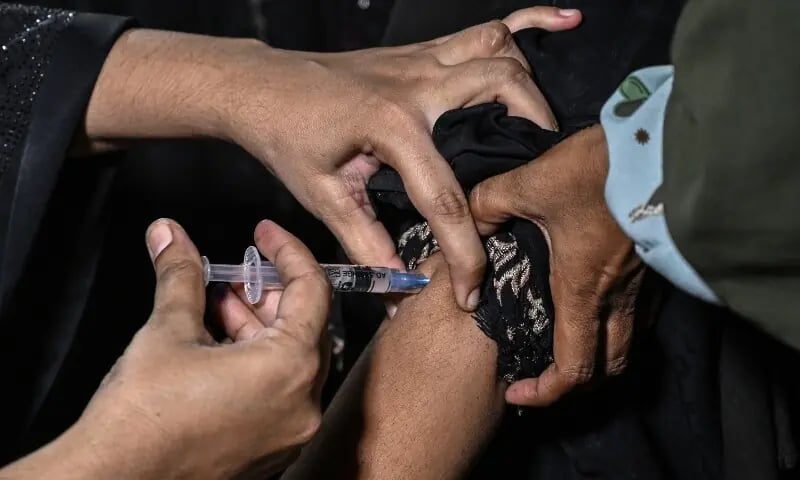GLOBISCOPES
Misinformation Hampers Pakistan’s First HPV Vaccine Drive for Girls
Misinformation Hampers Pakistan’s First HPV Vaccine Drive for Girls Karachi | September 2025 Pakistan’s first-ever campaign to vaccinate young girls against cervical cancer has been severely affected by misinformation and conspiracy theories, with many parents refusing the jabs and some schools shutting down to avoid participation. The nationwide initiative aimed to vaccinate 11 million girls with the HPV vaccine, which protects against the leading cause of cervical cancer. However, by the time the campaign ended on Saturday, health officials confirmed that only about half the targeted doses had been administered. --- Vaccine Resistance Fueled by Conspiracy Theories Rumors and conspiracy theories spreading online claimed the vaccine could cause infertility, disrupt hormones, or encourage sexual activity among young girls. Some parents even accused the government of forcing Western-made vaccines on Muslim populations to “control birth rates.” “Many families refused to open their doors, some gave false information about their daughters’ ages, and others turned us away outright,” said vaccinator Ambreen Zehra, who worked door-to-door in Karachi. Teachers in several rural schools also reported zero participation as parents refused to give consent. In Rawalpindi, one school confirmed not a single student was vaccinated. Some private schools even closed their doors for several days to avoid health workers. --- Social Media Fueling Panic Health officials said misinformation intensified after videos circulated online, falsely linking the HPV vaccine to painful side effects. One widely shared clip actually showed schoolgirls affected by teargas during a past protest — but it was misleadingly presented as footage of vaccine reactions. According to Syeda Rashida Batool, Islamabad’s top health officer, enthusiasm dropped sharply after these videos went viral. “On the first day we vaccinated 29 percent of our target. But by evening, after the videos spread, everything changed,” she said. --- Political and Religious Opposition Leaders from some religious parties also fueled fears. Addressing a rally in Karachi, Rashid Mehmood Soomro claimed the government was using the vaccine to “make our daughters infertile” and control the population. Mothers interviewed in Karachi and Lahore echoed these beliefs, calling the vaccine “unnecessary” or “dangerous.” One mother said her husband forbade vaccination, while another suggested moral teachings for boys would be more effective than vaccines for girls. --- Why the HPV Vaccine Matters Medical experts stress that the HPV vaccine is safe, effective, and recommended by the World Health Organization (WHO). Globally, it has been in use for years across more than 150 countries. 95% of cervical cancer cases are caused by persistent HPV infection. Pakistan reports around 5,000 new cases annually, with two-thirds of women dying due to late diagnosis and poor access to treatment. Cultural taboos and lack of awareness worsen the problem, leading many to underestimate the risk. By comparison, European Union data shows that widespread HPV vaccination has significantly reduced cases and deaths. --- Government Pushback Against Misinformation Facing widespread resistance, Pakistan’s Health Minister Syed Mustafa Kamal took an unusual step to rebuild public trust: he had his teenage daughter vaccinated live on television. “In 30 years of politics, I have never brought my family before the media,” he said. “But my daughter’s life is as precious as the daughters of this nation. I want to prove this vaccine is safe.” --- Vaccine Skepticism in Pakistan Pakistan is one of only two countries where polio remains endemic, alongside Afghanistan. Despite progress in recent years, vaccine hesitancy fueled by conspiracy theories has hindered eradication efforts. After celebrating a year without polio cases in 2023, Pakistan has already recorded 27 new cases in 2025. The HPV vaccine campaign highlights the deep challenges health authorities face in overcoming public distrust — but officials insist the vaccine will remain available so that more women and girls can access protection in the future.
HEALTH
globiscopes
9/30/20251 min read


Globiscopes news 2025
Globiscopes news empowers the generation of tomorrow for a brighter future and hope for every individual.
inbox
Subscribe to our newsletter and never miss a story.
We care about your data in our privacy policy.
